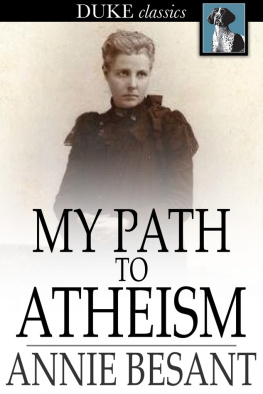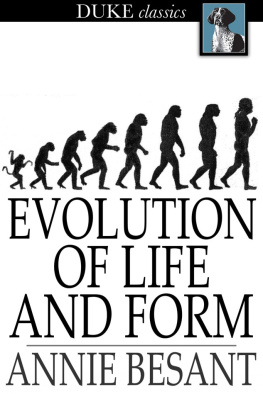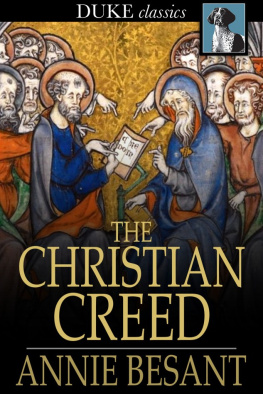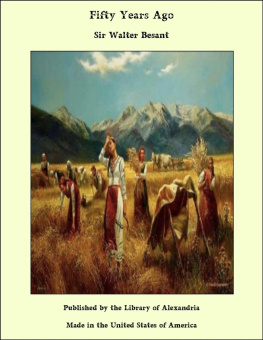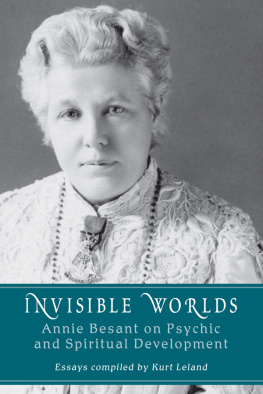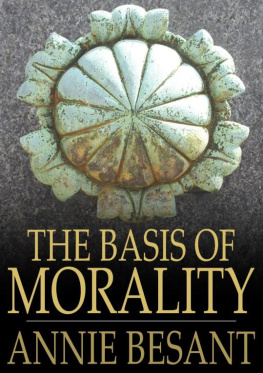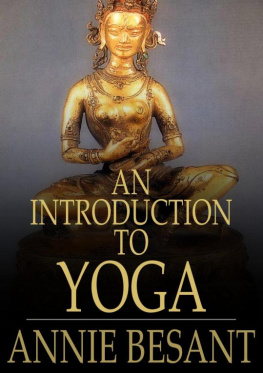Annie Besant - The Case for India: (Annotated)
Here you can read online Annie Besant - The Case for India: (Annotated) full text of the book (entire story) in english for free. Download pdf and epub, get meaning, cover and reviews about this ebook. year: 2017, publisher: Independently published, genre: Politics. Description of the work, (preface) as well as reviews are available. Best literature library LitArk.com created for fans of good reading and offers a wide selection of genres:
Romance novel
Science fiction
Adventure
Detective
Science
History
Home and family
Prose
Art
Politics
Computer
Non-fiction
Religion
Business
Children
Humor
Choose a favorite category and find really read worthwhile books. Enjoy immersion in the world of imagination, feel the emotions of the characters or learn something new for yourself, make an fascinating discovery.

- Book:The Case for India: (Annotated)
- Author:
- Publisher:Independently published
- Genre:
- Year:2017
- Rating:3 / 5
- Favourites:Add to favourites
- Your mark:
- 60
- 1
- 2
- 3
- 4
- 5
The Case for India: (Annotated): summary, description and annotation
We offer to read an annotation, description, summary or preface (depends on what the author of the book "The Case for India: (Annotated)" wrote himself). If you haven't found the necessary information about the book — write in the comments, we will try to find it.
The Case for India: (Annotated) — read online for free the complete book (whole text) full work
Below is the text of the book, divided by pages. System saving the place of the last page read, allows you to conveniently read the book "The Case for India: (Annotated)" online for free, without having to search again every time where you left off. Put a bookmark, and you can go to the page where you finished reading at any time.
Font size:
Interval:
Bookmark:
ADDRESS DELIVERED BY
ANNIE BESANT AT THE
THIRTY-SECOND INDIAN
NATIONAL CONGRESS
HELD AT CALCUTTA
26TH DECEMBER 1917
Fellow-delegates and friends,
Everyone who has preceded me in this Chair has rendered his thanks in fitting terms for the gift which is truly said to be the highest that India has it in her power to bestow. It is the sign of her fullest love, trust, and approval, and the one whom she seats in that chair is, for his year of service, her chosen leader. But if my predecessors found fitting words for their gratitude, in what words can I voice mine, whose debt to you is so overwhelmingly greater than theirs? For the first time in Congress history, you have chosen as your President one who, when your choice was made, was under the heavy ban of Government displeasure, and who lay interned as a person dangerous to public safety. While I was humiliated, you crowned me with honour; while I was slandered, you believed in my integrity and good faith; while I was crushed under the heel of bureaucratic power, you acclaimed me as your leader; while I was silenced and unable to defend myself, you defended me, and won for me release. I was proud to serve in lowliest fashion, but you lifted me up and placed me before the world as your chosen representative. I have no words with which to thank you, no eloquence with which to repay my debt. My deeds must speak for me, for words are too poor. I turn your gift into service to the Motherland; I consecrate my life anew to her in worship by action. All that I have and am, I lay on the Altar of the Mother, and together we shall cry, more by service than by words: VANDE MATARAM.
There is, perhaps, one value in your election of me in this crisis of India's destiny, seeing that I have not the privilege to be Indian-born, but come from that little island in the northern seas which has been, in the West, the builder-up of free institutions. The Aryan emi grants, who spread over the lands of Europe, carried with them the seeds of liberty sown in their blood in their Asian cradle-land. Western historians trace the self-rule of the Saxon villages to their earlier prototypes in the East, and see the growth of English liberty as up-springing from the Aryan root of the free and self-contained village communities.
Its growth was crippled by Norman feudalism there, as its millennia-nourished security here was smothered by the East India Company. But in England it burst its shackles and nurtured a liberty-loving people and a free Commons' House. Here, it similarly bourgeoned out into the Congress activities, and more recently into those of the Muslim League, now together blossoming into Home Rule for India. The England of Milton, Cromwell, Sydney, Burke, Paine, Shelley, Wilberforce, Gladstone; the England that sheltered Mazzini, Kossuth, Kropotkin, Stepniak, and that welcomed Garibaldi; the England that is the enemy of tyranny, the foe of autocracy, the lover of freedom, that is the England I would fain here represent to you to-day. To-day, when India stands erect, no suppliant people, but a Nation, self-conscious, self-respecting, determined to be free; when she stretches out her hand to Britain and offers friendship not subservience; co-operation not obedience; to-day let me: western-born but in spirit eastern, cradled in England but Indian by choice and adoption: let me stand as the symbol of union between Great Britain and India: a union of hearts and free choice, not of compulsion: and therefore of a tie which cannot be broken, a tie of love and of mutual helpfulness, beneficial to both Nations and blessed by God.
India's great leader, Dadabhai Naoroji, has left his mortal body and is now one of the company of the Immortals, who watch over and aid India's progress. He is with V.C. Bonnerjee, and Ranade, and A.O. Hume, and Henry Cotton, and Pherozeshah Mehta, and Gopal Krishna Gokhale: the great men who, in Swinburne's noble verse, are the stars which lead us to Liberty's altar:
Liberty only and these.
For thy sake and for all men's and mine,
Brother, the crowns of them shine,
Lighting the way to her shrine,
That our eyes may be fastened upon her,
That our hands may encompass her knees.
Not for me to praise him in feeble words of reverence or of homage. His deeds praise him, and his service to his country is his abiding glory. Our gratitude will be best paid by following in his footsteps, alike in his splendid courage and his unfaltering devotion, so that we may win the Home Rule which he longed to see while with us, and shall see, ere long, from the other world of Life, in which he dwells today.
The Great War, into the whirlpool of which Nation after Nation has been drawn, has entered on its fourth year. The rigid censorship which has been established makes it impossible for any outside the circle of Governments to forecast its duration, but to me, speaking for a moment not as a politician but as a student of spiritual laws, to me its end is sure. For the true object of this War is to prove the evil of, and to destroy, autocracy and the enslavement of one Nation by another, and to place on sure foundations the God-given Right to Self-Rule and Self-Development of every Nation, and the similar right of the Individual, of the smaller Self, so far as is consistent with the welfare of the larger Self of the Nation. The forces which make for the prolongation of autocracythe rule of oneand the even deadlier bureaucracythe rule of a close body welded into an iron systemthese have been gathered together in the Central Powers of Europeas of old in Ravanain order that they may be destroyed; for the New Age cannot be opened until the Old passes away. The new civilisation of Righteousness and Justice, and therefore of Brotherhood, of ordered Liberty, of Peace, of Happiness, cannot be built up until the elements are removed which have brought the old civilisation crashing about our ears. Therefore is it necessary that the War shall be fought out to its appointed end, and that no premature peace shall leave its object unattained. Autocracy and bureaucracy must perish utterly, in East and West, and, in order that their germs may not re-sprout in the future, they must be discredited in the minds of men. They must be proved to be less efficient than the Governments of Free Peoples, even in their favourite work of War, and their iron machinerywhich at first brings outer prosperity and successmust be shown to be less lasting and effective than the living and flexible organisations of democratic Peoples. They must be proved failures before the world, so that the glamour of superficial successes may be destroyed for ever. They have had their day and their place in evolution, and have done their educative work. Now they are out-of-date, unfit for survival, and must vanish away.
When Great Britain sprang to arms, it was in defence of the freedom of a small nation, guaranteed by treaties, and the great principles she proclaimed electrified India and the Dominions. They all sprang to her side without question, without delay; they heard the voice of old England, the soldier of Liberty, and it thrilled their hearts. All were unprepared, save the small territorial army of Great Britain, due to the genius and foresight of Lord Haldane, and the readily mobilised army of India, hurled into the fray by the swift decision of Lord Hardinge. The little army of Britain fought for time; fought to stop the road to Paris, the heart of France; fought, falling back step by step, and gained the time it fought for, till India's sons stood on the soil of France, were flung to the front, rushed past the exhausted regiments who cheered them with failing breath, charged the advancing hosts, stopped the retreat, and joined the British army in forming that unbreakable line which wrestled to the death through two fearful wintersoften, these soldiers of the tropics, waist-deep in freezing mudand knew no surrender.
Font size:
Interval:
Bookmark:
Similar books «The Case for India: (Annotated)»
Look at similar books to The Case for India: (Annotated). We have selected literature similar in name and meaning in the hope of providing readers with more options to find new, interesting, not yet read works.
Discussion, reviews of the book The Case for India: (Annotated) and just readers' own opinions. Leave your comments, write what you think about the work, its meaning or the main characters. Specify what exactly you liked and what you didn't like, and why you think so.

